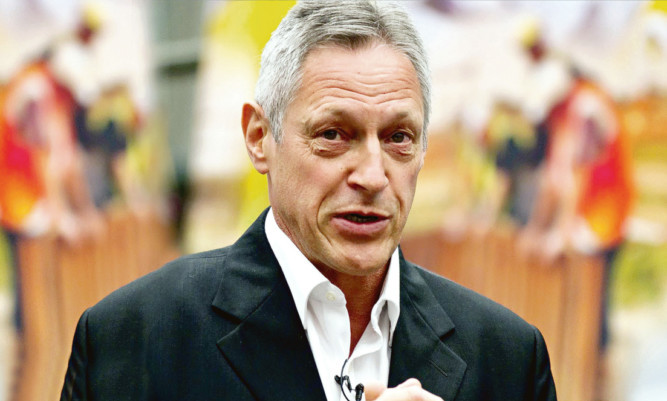
Sprint legend Allan Wells has refused to take a lie detector test over drugs cheat allegations.
The 1980 Olympic gold medal winner was accused of abusing steroids throughout his career by a BBC Panorama probe.
Last week the distraught 63-year-old told The Sunday Post the damaging claims were like being falsely accused of being a sex offender.
We can now reveal Wells was offered the chance to take a polygraph test, but declined.
Instead his legal team insisted it was time the BBC’s investigation team backed up their claims with evidence.
Professor Peter Watson, who is representing the former track star, said: “Allan Wells has been confronted by rumour and innuendo by the BBC.
“They say they have sworn statements but don’t say from whom or what is said. They say there’s a tape of a deceased doctor making comments but won’t let anyone hear the tape.
“As matters stand there is no factual allegation to answer, only unsubstantiated rumour and speculation from unnamed sources.
“There is nothing to test, so perhaps the polygraph can be offered to the anonymous sources?”
The BBC’s investigation into Wells entitled Catch Me If You Can was complied by reporter Mark Daly.
It claimed Edinburgh-born Wells abused steroids to reach the pinnacle of the athletics world. The probe relied on testimony and evidence from his former teammate and career-long rival Drew McMaster.
It also included a transcript of a taped conversation between McMaster and Dr Jimmy Ledingham, the Great Britain team’s doctor in the 1980s.
On the tape the Ledingham said: “Everybody knew Wells took drugs”.
But in his first interview after the BBC aired the details of their probe, Wells vehemently denied the allegations.
“I know I didn’t dope,” he said. “I know I was clean and I know the strength of the allegations.”
Earlier this month Czech cyclist Roman Kreuziger was cleared of doping charges.
The 29-year-old was pulled out of last year’s Tour de France and suspended by the UCI, cycling’s governing body, due to anomalies in his biological passport in 2011 and 2012.
As part of his defence he took a polygraph test, the results of which helped to clear him.
Respected polygraph examiner Terry Mullins, who was to conduct the test on Wells, believes a lie detector test could help clear his name.
He said: “I am not sure that silence will convince the public of his innocence. Kreuziger’s test helped clear his name.”
He added: “Polygraph exams are playing a more significant role in sport.”
The documentary also included allegations against Alberto Salazar, track star Mo Farah’s coach. It has since emerged the runner missed two drugs tests before winning double gold at the 2012 London Olympics.
In a statement Farah, 32, said: “I’ve never taken performance-enhancing drugs in my life and I never will.”
BBC Scotland previously said: “We received a complaint from Mr Wells’ lawyers. This is being dealt with in the normal way.”
Mr McMaster was unavailable for comment.

Enjoy the convenience of having The Sunday Post delivered as a digital ePaper straight to your smartphone, tablet or computer.
Subscribe for only £5.49 a month and enjoy all the benefits of the printed paper as a digital replica.
Subscribe